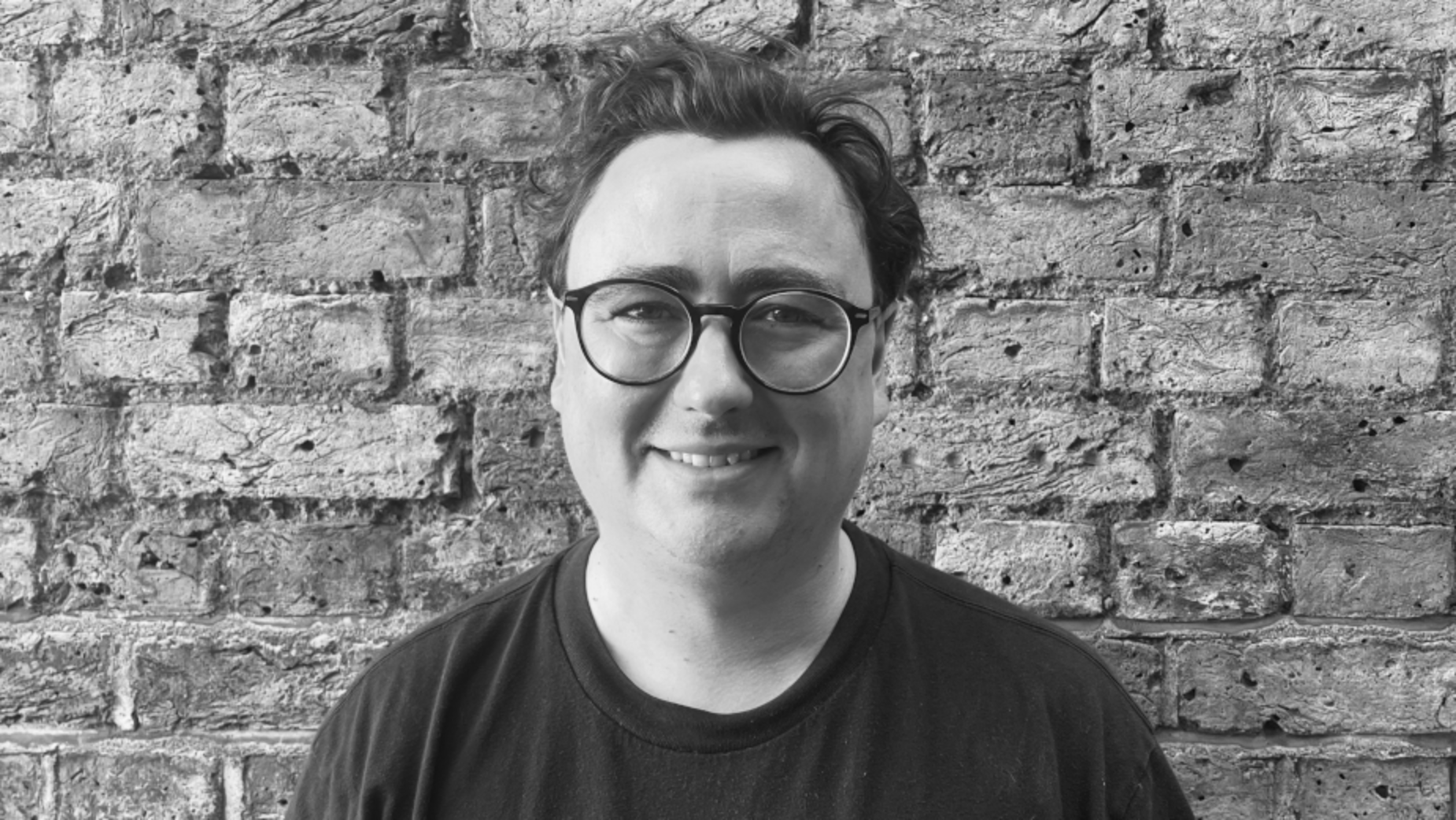
Meet Your Makers: James Robley on Why You Can Only Learn By Doing

James Robley is a executive producer at No.8 London and has worked across a variety of disciplines in production including big brand campaigns such as BT Sport with Fredrik Bond, animation and CGI campaigns such as Hophouse lager with Nick Livesey, doco-style work with John Dower for Guinness and comedy for Currys with Jack Clough. He’s been lucky to also work on productions directed by Henry Alex-Rubin, Martin Werner, Mat Whitecross and Andy McLeod to name but a few.
LBB> What first attracted you to production - and has it been an industry you’ve always worked on or did you come to it from another area?
James> Like a lot of people that work in production I sort of fell into it. I first started out in advertising in the AMV dispatch department with no real idea of what I wanted to do other then be in a creative industry.
My previous jobs had me clock watching, and I had never really enjoyed work before agency life. Even though, initially, I was just popping mail on to peoples desks I was totally seduced by the energy and culture of AMV. I started figuring out what all the departments did and chatted to as many people as possible. The production department where the ones that actually made stuff. What could be more exciting than that? So, I became a department assistant, and I haven’t clock watched since.
LBB> What was your first role in the production world and how did this experience influence how you think about production and how you grew your career?
James> After the TV assistant role my first real production job was as an assistant producer. I was an AP to two producers. From both I learned a wealth of production knowledge and as a result gained confidence in my abilities. The amount of cool stuff we got to work on, the amazing people we were working with, the variation of work. I knew pretty instantly this was going to be my career.
LBB> How did you learn to be a producer?
James> At AMV we spent longer than most as APs before being promoted. At the time it could feel a little frustrating, but the truth is I think it equipped us well for pressures the job can bring.
Again, I was lucky enough to be taught by and to be around the best in the business. It’s experience at the end of the day. You learn to do the basic stuff automatically so you can concentrate on the multiple curveballs that are flung at you on the daily. But really, I’ve got to thank the producers I worked for in those early days - Lindsay Hughes and Yvonne Chalkley.
LBB> Looking back to the beginning of your career, can you tell us about a production you were involved in where you really had to dig deep and that really helped you to grow as a producer?
James> To be honest, especially at the beginning of my career, I was digging deep on most projects. Situations that may seem small now felt like a huge deal. But I think most producers, even though they seem unaffected on the surface, are digging deep on most jobs despite their seniority.
LBB> A good producer should be able to produce for any medium, from film to events to digital experience. Do you agree or disagree with this statement?
James> I don’t outright disagree, but I don’t entirely agree with this. Of course, there are many transferable skills. Agency producers for example need to be able to deliver an integrated campaign across TV, digital and radio. However, experience is the key word. It takes time to build the relationships, knowledge and experience needed to pull off a production in any field. I think people should be applauded for their expertise and dedication to their medium. It’s okay to have strengths and weaknesses.
LBB> What’s your favourite thing about production and why?
James> I think being involved in starting something, making it happen and eventually seeing it finished. For something to be completed and out there in world is really rewarding. You’re then free of it and on to the next thing. The other thing is the resource that’s available to you – we are exceptionally lucky to be able to work with such brilliant talent in this industry.
LBB> How has production changed since you started your career?
James> The world in which we live in has changed so the content we produce has changed with it. When I started it was only just changing from film stock to digital. Social media was in it’s infancy - people only really had a Facebook page they hardly checked and possibly a defunct Myspace account. Smart phones came along and changed everything.
So now the content we produce happens faster and is delivered across an ever-increasing array of platforms. With that comes a lot of opportunity. However, I’d be lying if I said I didn’t love it when those more traditional, big budget executions come along.
LBB> And what has stayed the same?
James> The one thing that will forever be a constant is the importance of the script. It’s so exciting when you feel like a good one’s landed on your desk. It’s the key that unlocks everything.
LBB> What do you think is the key to being an effective producer - and is it something that’s innate or something that can be learned?
James> Don’t just put a procedure in place and paint by numbers – it’s a creative role. The decisions you make can and will influence the outcome of the work. No matter how big or small the job you should be putting all your energy in to helping make it as good as it possibly can be.
LBB> Which production project from across your career are you most proud of and why?
James> There’s been a few.
There was the first job I got a producer credit on. I won’t say what it was, it wasn’t particularly good, but I was definitely proud of that all-important credit.
I was very happy with how a BT sport job I worked on turned out. It had a vast array of challenges – budget issues, timing issues, 13 celebs flying in and out with crazy schedules. But everyone pulled together and made a great film.
Lastly, when I was an AP, I worked on a Cancer Research UK job. I was amazed by the courage of the contributors and how the shoot was deftly handled to achieve the most impactful film. It was the first time I realised that we could be involved in something that really mattered and that job has stuck with me ever since.
LBB> And in terms of recent work, which projects have you found to be particularly exciting or have presented particularly interesting production challenges?
James> My recent excitement has come more from my job move than a particular project. I’ve recently jumped from agency producing to an EP role in post-production at No.8. No.8 works across all post disciplines – audio, colour and VFX. Each department, lead by industry leaders, are top of their game and under one roof and with one production team. We like to think it’s better together, creatively as well as commercially.
I’m now more involved in new business and initial scoping of projects before they get signed off and underway. Having an agency background helps me to understand what our clients are going through on their jobs and how many plates they can have spinning. Being involved on the ‘other side’ of the business feels fresh, new and exciting.
LBB> What are your personal ambitions or aspirations as a producer?
James> Right now, it’s continuing to learn in my new role and to be part of No.8’s continued growth. I feel incredibly lucky to be able to add another string to my bow by coming over to post production.
LBB> As a producer your brain must have a never-ending "to do" list. How do you switch off? What do you do to relax?
James> I watch a lot of films, listen to a lot of music, I play guitar and if I have time I draw or paint (though definitely should be watching less films and doing more art).
LBB> Producers are problem solvers. What personally fuels your curiosity and drive?
James> At the risk of sounding corny I really love helping people. It’s rewarding to be part of the solution that everyone is happy with.
LBB> What advice would you give to people who are interested in becoming a producer?
James> Don’t be shy, get stuck in and make stuff. You can only learn by doing.
LBB> From your experience what are the ingredients for a successful production?
James> A great team of people that work together, listen and have respect for each other.
LBB> What’s the key to a successful production-client relationship?
James> Trust and collaboration.
LBB> Producers are naturally hands on - they have to be. How do you balance that in the more managerial role of an EP?
James> It is a little weird no longer being in the weeds on production. But I’m working in a different discipline these days so stepping back a bit and letting our post producers take control of running the jobs is a little easier than if I was still agency producing – they’re the experts.













